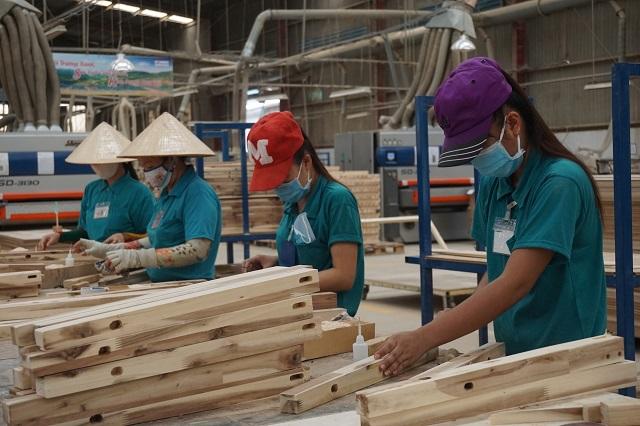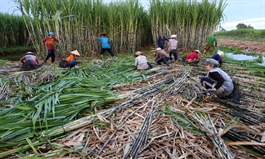Vietnam reaches agreement with US on illegal timber control
Vietnam reaches agreement with US on illegal timber control
With this agreement, Vietnam will provide a model – both for the Indo-Pacific region and globally – for comprehensive enforcement (of regulations) against illegal timber, said the US Trade Representative Katherine Tai.
Vietnam and the US have reached an agreement on the control of illegal timber trading or extraction, under which there would be no trade action against Vietnam’s exports of wooden products to the US in the coming time.

Processing wooden products at Hanoi Industrial Park. Photo: Viet Linh |
The Ministry of Agricultural and Rural Development (MARD) announced the deal today [October 2], saying this demonstrated strong efforts from the Government in negotiating with the US to conclude its investigation into Vietnam’s timber trade.
“The signing shows goodwill from both sides to put an end to this matter, and helps enhance the reputation of Vietnam’s timber industry,” stated the MARD.
US Trade Representative Katherine Tai also made a statement on the deal yesterday.
According to Tai, the agreement secures commitments that will help keep illegally harvested or traded timber out of the supply chain and protect the environment and natural resources.
Going forward, the Office of the U.S. Trade Representative (USTR) will monitor Vietnam’s implementation of the Agreement.
“I commend Vietnam for its commitment to address our concerns regarding the importation and use of timber that is illegally harvested or traded,” said Ambassador Katherine Tai. “With this agreement, Vietnam will provide a model – both for the Indo-Pacific region and globally – for comprehensive enforcement against illegal timber. USTR looks forward to working with Vietnam to deepen collaboration and information exchange, including through a newly created Timber Working Group.”
The agreement contains multiple commitments by Vietnam on issues related to illegal timber, including commitments to improve its Timber Legality Assurance System; keep confiscated timber (i.e., timber seized for violating domestic or international law) out of the commercial supply chain; verify the legality of domestically harvested timber regardless of export destination, and work with high-risk source countries to improve customs enforcement at the border and law enforcement collaboration.
“Illegal timber in the supply chain damages the global environment and the natural resources on which we all depend, and is unfair to US workers and businesses who avoid such timber,” added Ambassador Tai. “USTR’s first use of Section 301 in this investigation shows the strength of using this tool to address concerns regarding environmental risks or the enforcement of environmental laws.”
The USTR investigation was initiated in October 2020 under Section 301 of the Trade Act of 1974.
The US is one of Vietnam’s largest wood export markets, with an export turnover of US$7.4 billion in 2020, or 57% of the country’s total exports of wood and wooden products.
Despite the severe Covid-19 impacts, Vietnam’s exports of timber products rose by 58.8% year-on-year in the first eight months of 2021 to $6.4 billion.



























